Hair loss in cats, officially known as alopecia, is a fairly common occurrence. The range of how much hair is lost and on what parts of a feline’s body can vary widely, however, and this largely depends on the exact root cause of the hair loss. This can range from slight thinning to large bald spots, and it is naturally alarming for a cat lover to notice this on their feline.
While there are some cat breeds like the Sphynx that have a genetic mutation causing them to be more or less hairless, hair loss in other breeds is not normal, and there is always some kind of underlying health issue. It’s important to note that alopecia is not a disease in and of itself, but rather a term used to describe a sign of a disease or condition.
If you’re wondering “Why is my cat losing hair?”, you’ve come to the right place. We’ve put together this list of nine possible causes, along with the most common veterinary treatments that can help solve the issue as quickly as possible and help your feline get back to normal. This list is not exhaustive, so please speak to a veterinarian if your cat is losing hair.

The 8 Causes and Treatments for a Cat Losing Hair
1. Skin Parasites
There are several skin parasites that may lead to hair loss and skin changes through excessive itching, scratching, and licking. Most commonly, these are fleas and various types of mites, such as ear mites, canine and feline scabies, walking dandruff, and feline demodicosis. All of these mites cause skin lesions on various parts of the body, such as crusts, scaling, dandruff, scabs, and hair loss, which are most commonly itchy, but it depends on the type of mite. Ear mites affect the ear canals.
Your vet will take samples of the hair or discharge from the ears and scrapes of the skin in order to examine it for the most common skin parasites. By establishing a proper diagnosis and starting adequate treatment, your cat’s hair should grow back with time. Keeping up with regular flea and mite treatment and prevention is crucial, and your vet can recommend the most appropriate and approved product for your cat. Never use dog products, as they can be toxic to cats. Even indoor cats can have fleas and other skin parasites.
2. Ringworm
Ringworm is actually a fungus that affects the skin, hair, and sometimes the claws, which is called dermatophytosis. It is a zoonosis, which means that people can contract it from animals through direct contact or environmental contamination. It is very contagious and can spread to other pets. Some animals have very mild or no signs, while others can have a thickened patch of skin with hair loss that can be round in shape. Hairs become fragile and easily fall out. Areas usually affected are skin on the head, chest, front legs, and along the back.
If your cat has lesions that resemble ringworm, there are a few tests your vet can use to confirm the disease. Your cat will then start appropriate treatment, which is likely to last at least 6 weeks and may be a combination of oral and topical therapy. It’s important to minimize exposure and contact of the cat with other animals and people in the household and to discuss hygiene and environmental cleaning with your vet. It’s important to use gloves, wash your hands, and sanitize surfaces, as the spores from the environment may cause further spread of the fungus.
Cats will usually be contagious for around 3 weeks, and people with a suppressed immune system or children may also develop skin lesions. Speak to your doctor if any family members have developed skin changes or are taking immunosuppressants.
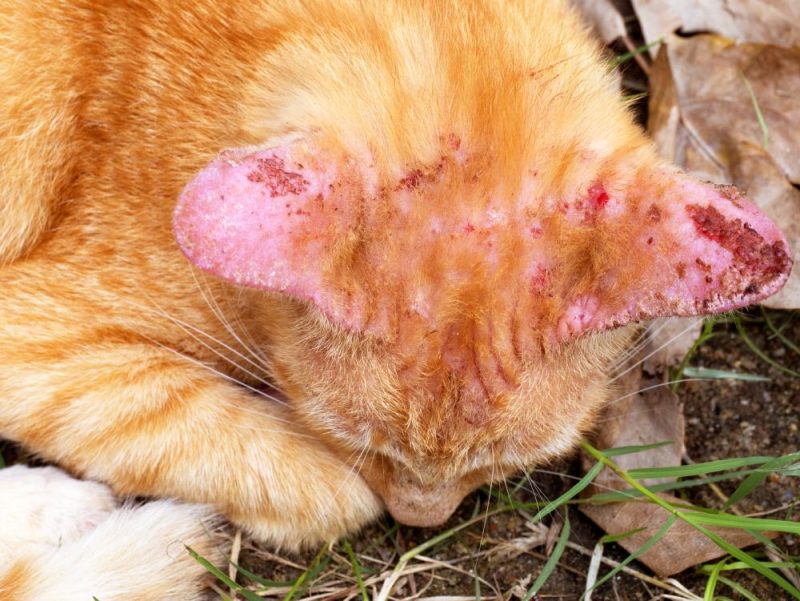
3. Allergies
Allergies are a common reason for hair loss and skin irritation in cats, and it may be the next thing to investigate in some cats, depending on their age and distribution of skin changes. Fleas in particular are an irritant to any cat, but in some individuals, fleas can lead to severe allergic skin reactions. This is due to a hypersensitivity to antigens within the flea’s saliva, which causes extreme itchiness and leads to excessive overgrooming by your cat. In this case, the hair is not actually falling out but is being damaged and pulled out by licking and scratching faster than it can be replaced. Cats can also be allergic to certain food proteins or environmental allergens, such as pollen or even house dust mites, that can also cause excessive itching, licking, and self mutilation, leading to hair loss.
A vet will first rule out non-allergic skin disease. Afterwards, allergic skin disease is often established as a diagnosis of exclusion. Referral to a veterinary dermatologist may also be considered for specific allergy testing or immunotherapy. There are several immunosuppressants used for managing allergies in cats, depending on the cause, alongside food trials if food allergy is part of the issue. Regular flea prevention is also crucial.
Get in touch with a veterinarian for guidance on the best course of action regarding your cat’s hair loss.
If you need to speak with a vet but can't get to one, head over to PangoVet. It's an online service where you can talk to a vet online and get the advice you need for your pet — all at an affordable price!

4. Infections
Skin infections can also cause patches of hair loss in cats. This could be from bacterial or fungal infections, causing your cat to lose hair in the affected areas. Sometimes, infections may even be caused by your cat licking their skin until there is an open wound, which can then become infected, making hair loss even worse.
Cats may also have skin wounds and abscesses from fighting with other neighboring cats or trauma. Alongside hair loss, often there is obvious skin damage, swelling, discharge, and redness, and the area is painful, so your cat may not allow you to check it.
All skin infections—be it from excessive licking due to another underlying cause, an abscess, or a wound—need veterinary attention promptly. Your vet can confirm if there is a fungal or a bacterial infection by culturing the site. They will clean the area and prescribe your cat with appropriate antifungals, topical or systemic antibiotics, and painkillers, and will give you instructions on home care if any is required. Often cats will need to wear Elizabethan collars for a few days until the infection is under control and the area has healed.
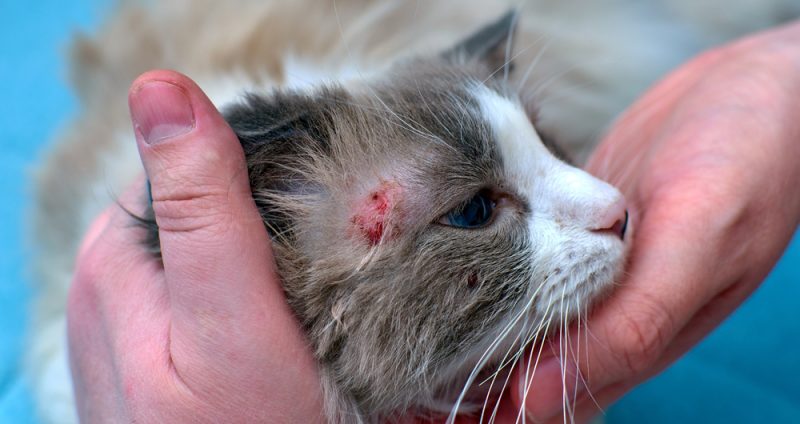
5. Pain
Pain is another fairly common cause of hair loss that may be more subtle. Your cat may incessantly lick their fur not from itchiness, but from pain, in an effort to relieve the pain or discomfort. Of course, like in cases with allergies, your cat may inadvertently end up licking away the hair too. This can happen with conditions like arthritis or even injuries and medical conditions, such as a urinary tract issue, when they excessively lick their genital area.
The best plan of action is a visit to the vet straight away, particularly if there are any urinary signs, such as straining to pee or blood in urine, to make sure there is no underlying disease. Chronic arthritis is painful and also requires veterinary attention. Depending on the cause, your vet can then provide treatment accordingly, which will hopefully stop the licking and hair loss.
6. Stress
A highly stressed feline may seek a way of relieving their stress, often resulting in compulsive behavior like incessant licking or scratching. Moving to a new home, introducing a new pet, or any other big changes in your cat’s life may cause anxiety and stress and cause them to lick themselves obsessively. Usually, once the stressful event is over, they may stop the habit, but at times, it can become compulsive.
Try to identify if there have been any events in your cat’s life that may be causing them stress. See if you can reduce this for them, like keeping a new pet away for a while, or better yet, try to avoid any stress from the beginning as much as possible. Try to introduce new pets slowly and calmly to reduce anxiety. Keep the noise and any changes in their routine to a minimum, and ensure they have a safe and peaceful area to rest where they will not be disturbed. But also, be mindful that there are many medical reasons that may present. Getting your cat checked by a vet is the best thing to do before assuming their overgrooming is related to stress. Chronic anxiety and stress is not good for them and may lead to various health issues.
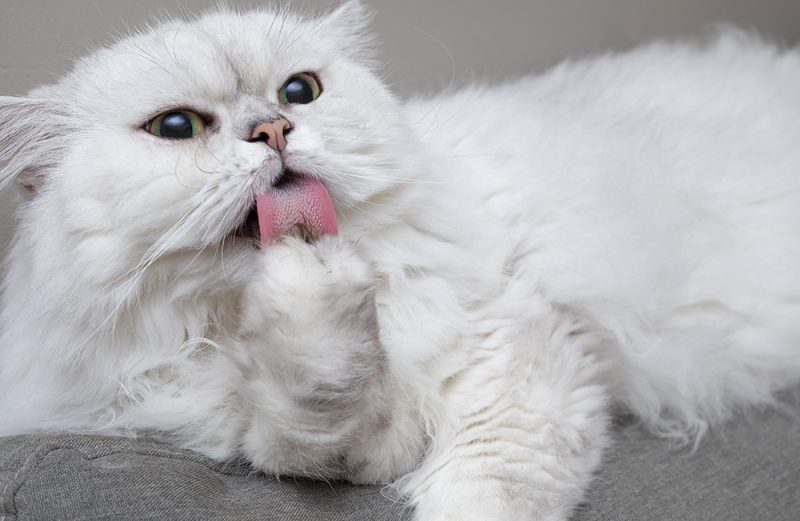
7. Endocrine and Other Medical Issues
Hormonal or endocrine imbalances, such as those caused by conditions like hyperthyroidism, may cause a dull, unkempt coat appearance, while hyperadrenocorticism is a fairly rare endocrine disease in cats that causes fragile and thin skin with hair loss, among other more common signs.
There are specific hormones that are responsible for your cat’s hair growth, and changes in the cat’s body during metabolic stress and illness may in some cases result in bald patches. This sometimes occurs with pregnant or lactating cats due to hormonal changes, but once they have weaned their kittens and been spayed, their hormones should go back to normal.
The best course of action is a visit with the vet, as they will be able to test and diagnose any kind of endocrine imbalances or underlying medical conditions and then provide adequate treatment.
8. Side Effects of Medication
Certain medications may cause alopecia as a side effect, and simply stopping the medication should halt the hair loss. If your cat is on chronic medication, you may need to speak to your vet about a possible alternative if the timing of hair loss corresponds to dosing of the medicine. This can be noticed with topical flea and worming treatment applied on the back of the neck, or some types of topical treatment, such as medicated cream used for managing hyperthyroidism that is applied on the ear pinna. Hair loss associated with medication will occur in a small percentage of cases.
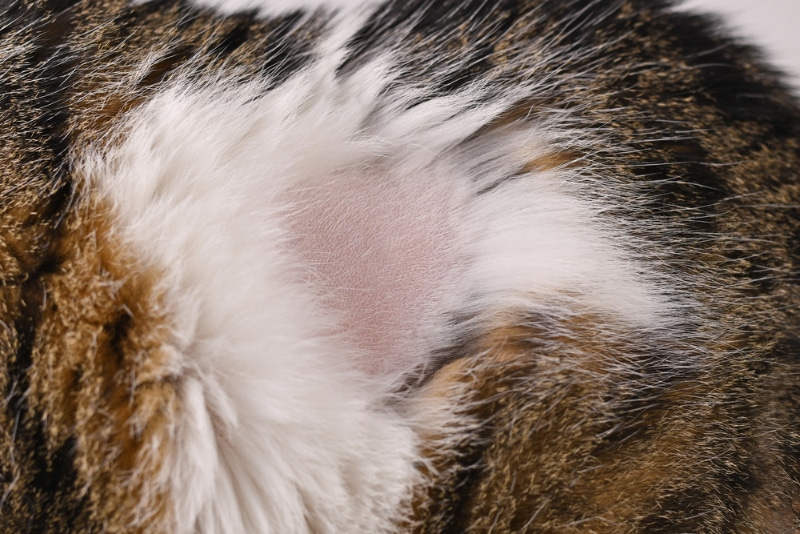

Additional Information

Final Thoughts
Most of the time, your cat’s hair loss is a sign of an underlying issue, skin parasites, allergic skin disease, pain, medical condition, stress, and more. Once that issue is identified, it can be treated, and you can have a healthy, fluffy cat in no time. Consult with a vet as soon as you notice any skin changes or hair loss in your feline and before the signs get worse so your cat can receive adequate treatment.
See Also:
Featured Image Credit: RJ22, Shutterstock
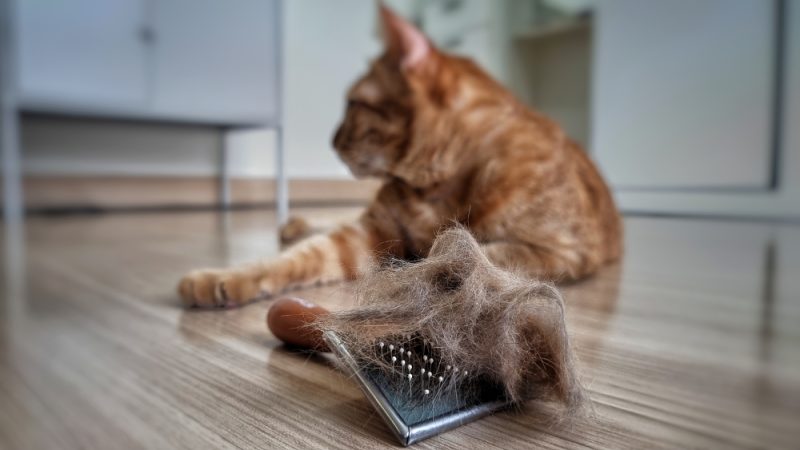


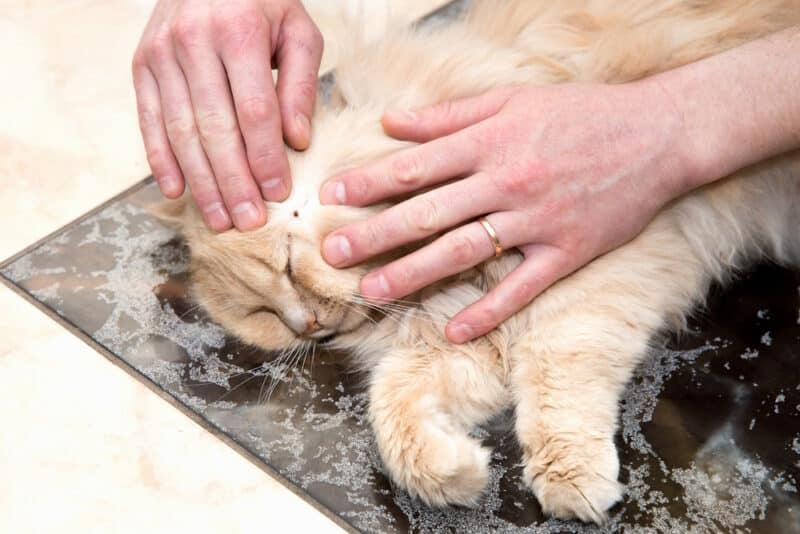
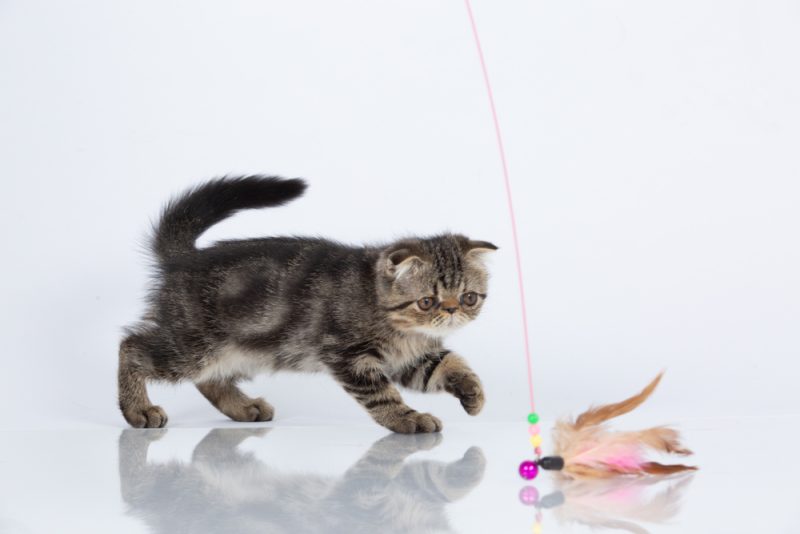
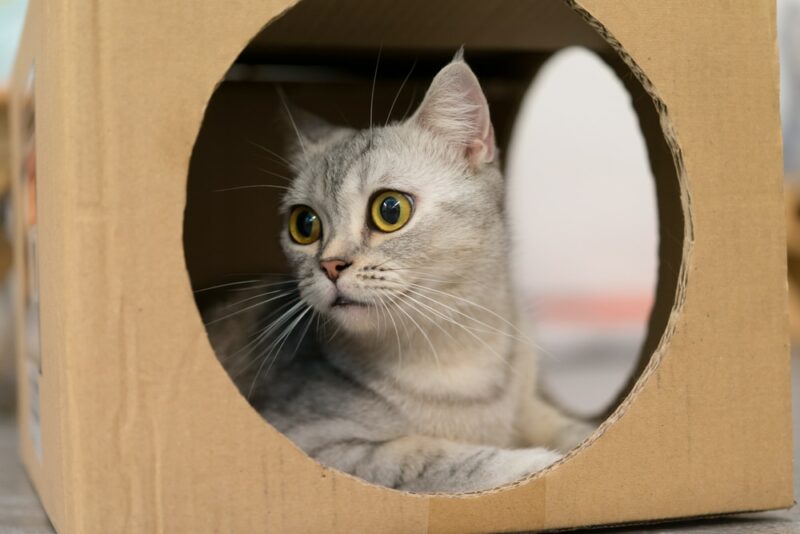
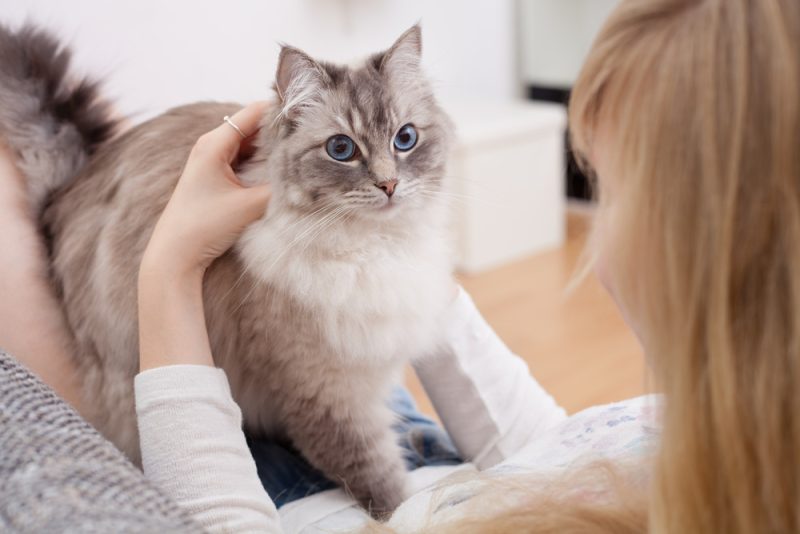
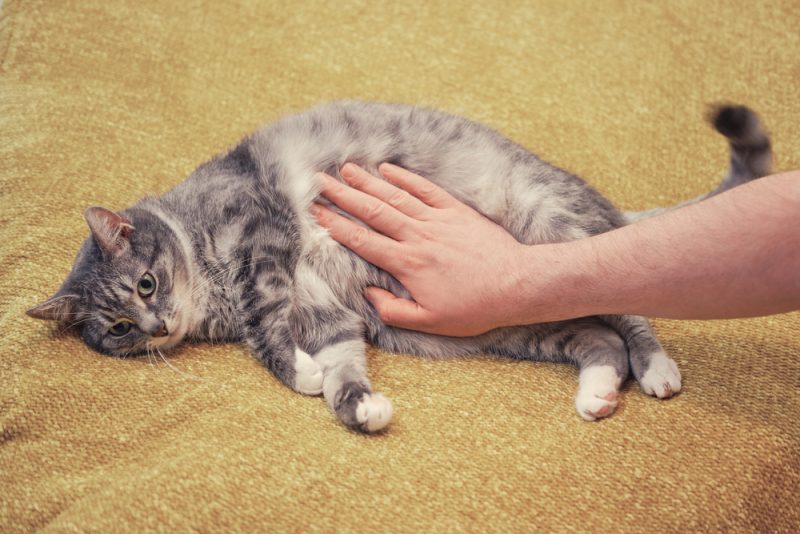
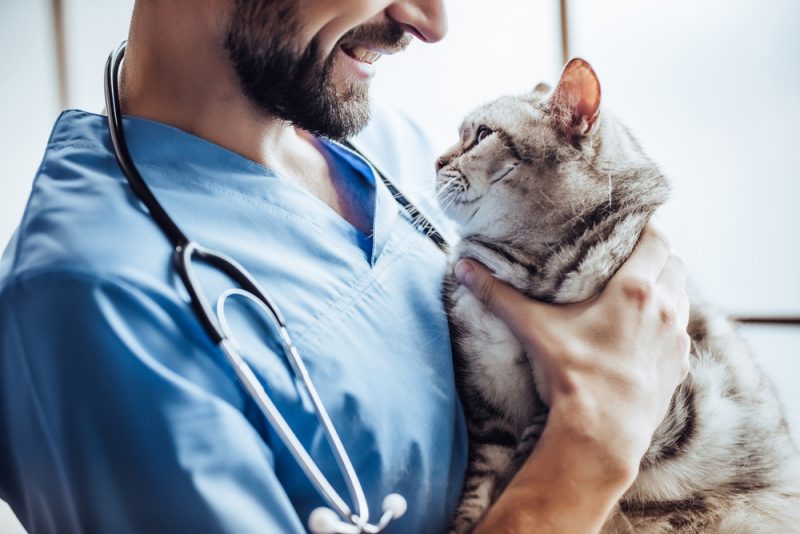

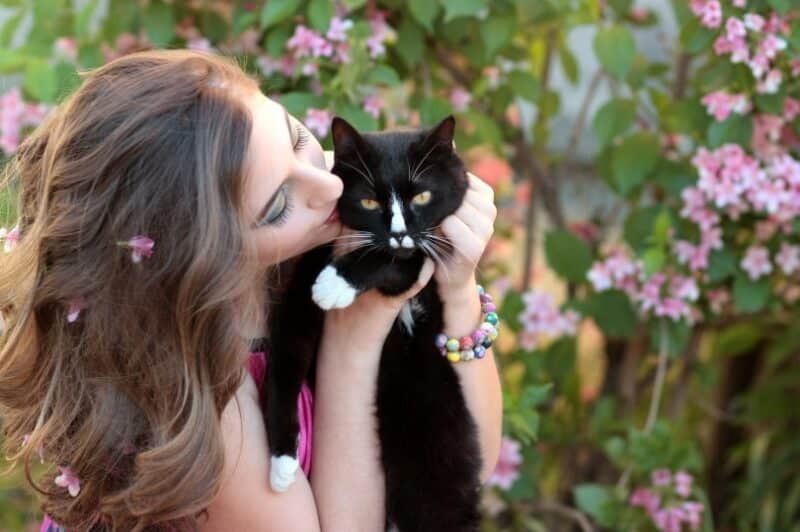

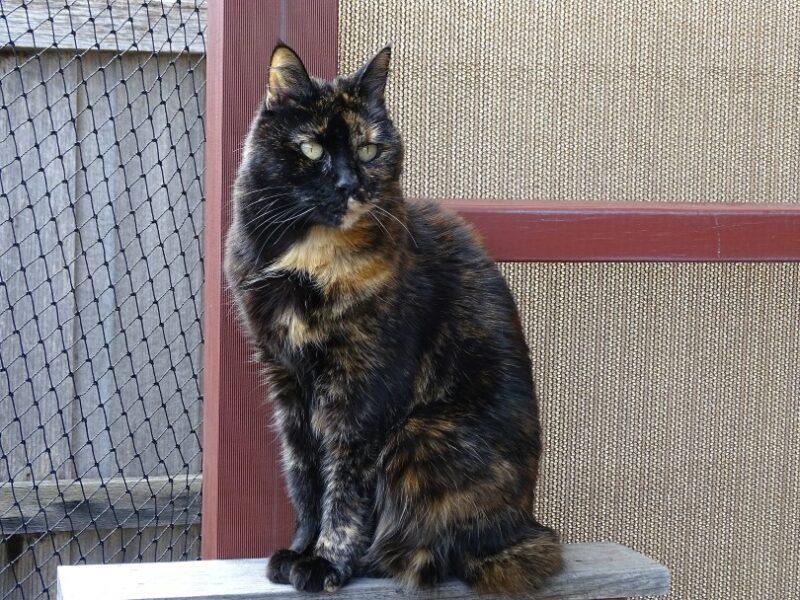
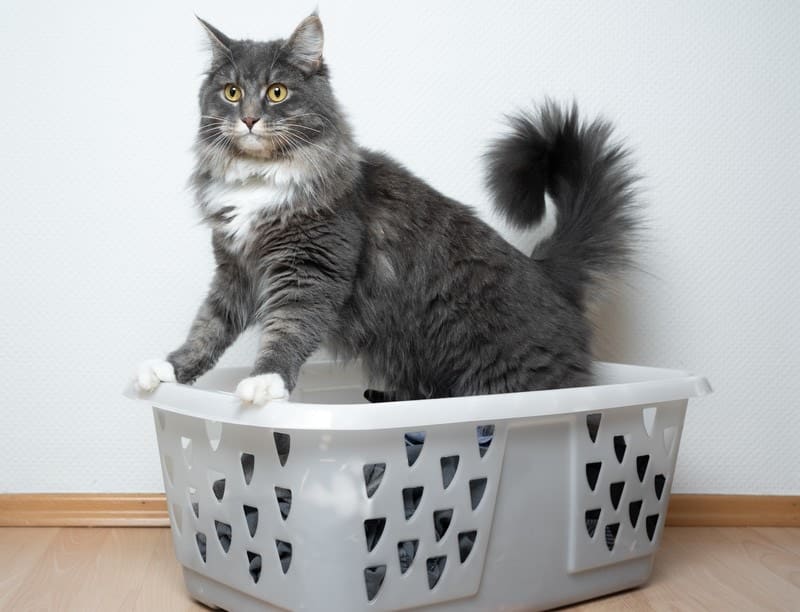
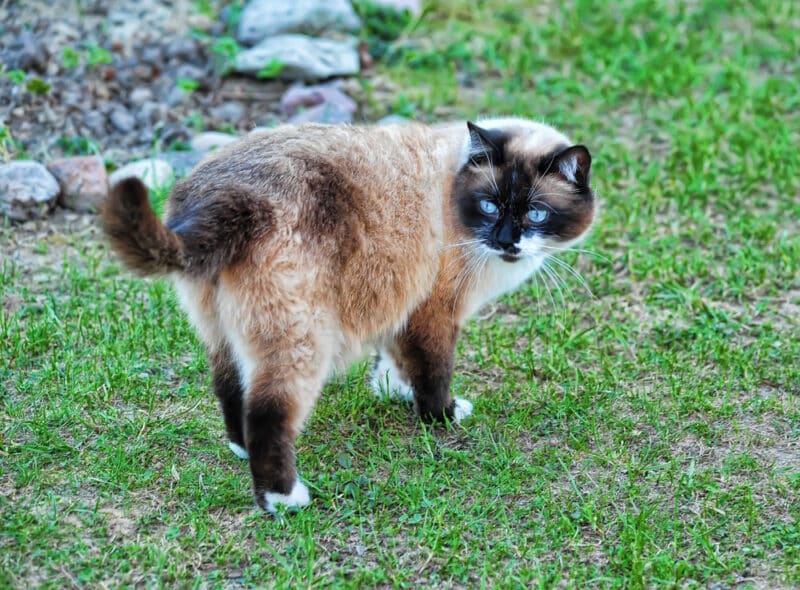


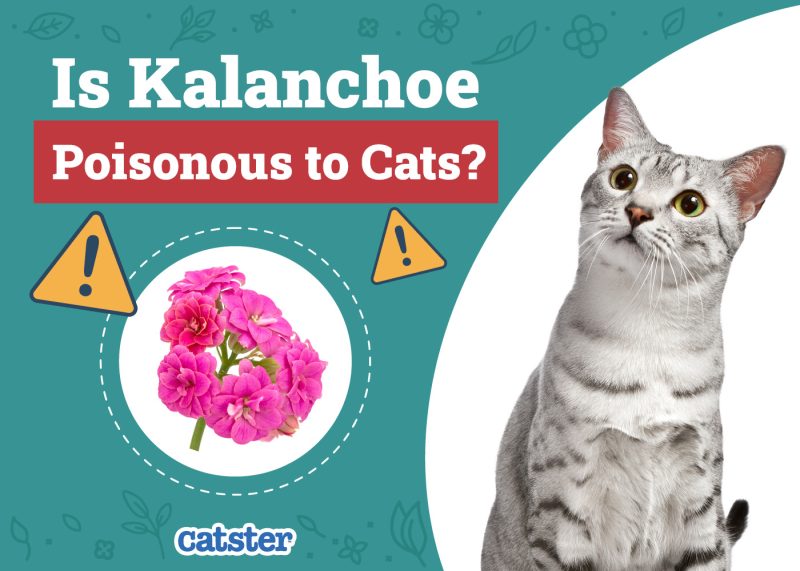
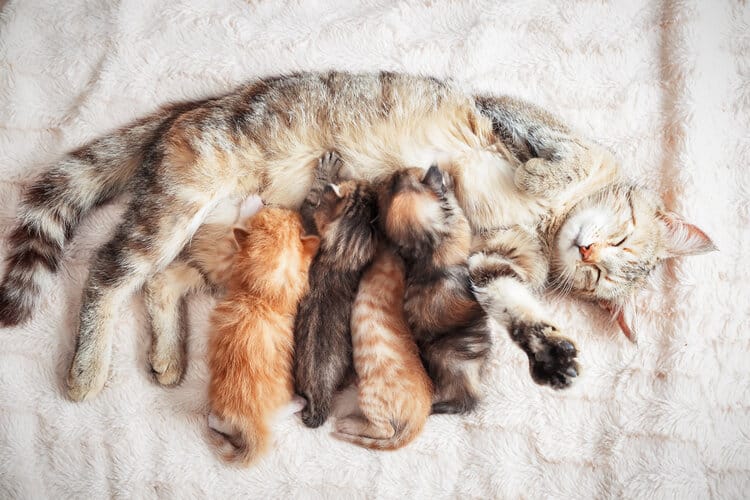



4 Responses
whatever happened to veterinarians that were in it for the pet and only charged a reasonable amount of money that you could afford? now it's like 500 to $800 just to get your pet checked and the tests they supposedly run that come back negative so they have to do more extensive blood work and then whatever the treatment costs it ends up being $2500 and if you don't have that kind of money they'll let your pet die. it's sad how evil and greedy this world's become!!
Thank you for sharing your perspective Scott. It’s certainly a polarizing topic, but you make a very practical point; vets are providing high-level medical care, and like any hospital, that comes with significant costs.
While it is heartbreaking when a pet parent can't afford care, the high price tags in 2025 are rarely about personal greed. Modern veterinary clinics function like mini-hospitals; they have to purchase and maintain expensive diagnostic equipment (like digital X-rays and ultrasound), pay for 24/7 utilities, and keep up with the rising costs of medical supplies and specialized drugs. Additionally, many veterinarians graduate with over $150,000–$200,000 in student debt, and clinics must pay competitive wages to keep skilled staff during the current labor shortage. It’s a difficult balance between providing the "gold standard" of care and remaining accessible to everyone.
Corporatization of clinics is also a reality. You can learn more about this here: Chatting About Rising Vet Costs, Corporate Clinics, and Being Understanding & Kind | Chatty Cattys: https://youtu.be/6l49Rw0PesE?si=U7T1xzJNWu0K6mgv
My male 3 year old Tuxedo, I’ve noticed recently has 2 dots of missing fur on the back of his ears near the head and almost on identical areas on both ears.
Hi Carolyn. This can have several causes. You might also want to consider a video call with a veterinarian at www.pangovet.com; they can guide you through the next best steps. However, these cases usually need to be checked in person by a veterinarian to rule out medical issues, such as a skin infection, parasites, or an allergy causing him to scratch.